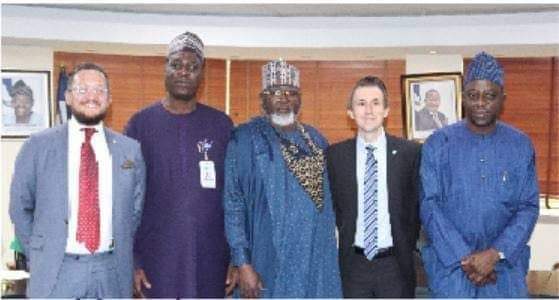
American space company, Space Exploration Technologies, SpaceX, has expressed interest to bring its Starlink satellite internet into Nigeria.
The company has already entered into advanced discussions with the Nigerian Communications Commission, NCC, to ensure the move cascades into a successful technology transfer project.
Starlink’s Market Access Director for Africa, Ryan Goodnight along with SpaceX consultant, Levin Born paid a visit to the NCC where they expressed interest to obtain a licence to operate the satellite internet in the country.
Unlike Twitter, SpaceX, owned by another disruptive tech expert, Elon Musk, has identified Nigeria as a critical market in Africa and would want to show a huge presence in the country. The company is in the process of launching a low-earth orbiting constellation of satellites to provide low latency, high bandwidths Internet to all corners of the world.
Sources gathered that prior to the visit, the regulator and the space company have been discussing the issue virtually before approval for a physical meeting was granted by the NCC.
After SpaceX representatives provided an overview of its plans, expectations, licensing requests and deployment phases, the Executive Vice-Chairman, NCC, Prof. Umar Danbatta, represented by the Executive Commissioner, Technical Services, NCC, Ubale Maska, promised them that the NCC will work on necessary modalities to ensure that it balances the need for healthy competition vis-a-vis the entry of new technologies, in order to protect all industry stakeholders.
Maska said: “As the regulator of a highly dynamic sector in Nigeria, the Commission is conscious of the need to ensure that our regulatory actions are anchored on national interest. We have listened to your presentation and we will review it vis-à-vis our regulatory direction of ensuring effective and a sustainable telecoms ecosystem where a licensee’s operational model does not dampen healthy competition among other licensees,” Maska told the SpaceX delegation.
He noted that the plan’s target of 70 percent broadband penetration, covering 90 per cent of the population by 2025 is also in line with government expectations in the National Digital Economy Policy and Strategy, NDEPS, 2010-2030.












